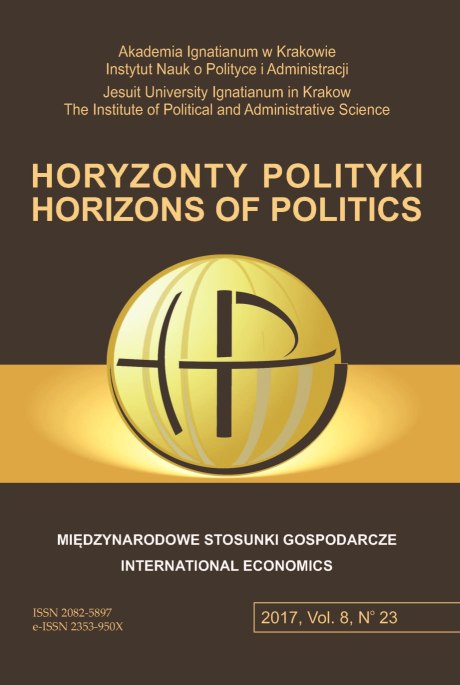Rozwój infrastruktury gospodarki cyfrowej w polityce Unii Europejskiej
Development of digital economy infrastructure in European Union policies
Author(s): Sylwia Talar, Joanna Kos-ŁabędowiczSubject(s): Economy, Economic policy, EU-Accession / EU-DEvelopment, ICT Information and Communications Technologies
Published by: Uniwersytet Ignatianum w Krakowie
Keywords: Internet infrastructure; digital economy; policy of European Union; Digital agenda for Europe;
Summary/Abstract: RESEARCH OBJECTIVE: Goal of the paper is to analyse the quality of European policies on building of digital economy infrastructure with specific regard to its goals. Special attention was devoted to an attempt to answer the question whether goals formulated and stated by EU fulfil the criteria of concrete and achievable goals, according to SMART concept. THE RESEARCH PROBLEM AND METHODS: Hypothesis of the paper states that one of the main reasons for ineffectiveness of policy actions of the EU is incorrect formulation of the goals. This paper analyses first of so‑called key goals delineated in Digital European Agenda regarding development of Internet infrastructure; the goal in question is to provide 100% of EU citizens with broadband Internet access by year 2013. Following methods were used in the research process: literature study, critical analysis, descriptive data analysis, and reasoning. THE PROCESS OF ARGUMENTATION: In the first place, analysis of the evolution of the goals concerned with development of Internet infrastructure in EU policy was performed; the time of the analysis covered range from beginning of the policy’s existence to current Europe 2020 strategy. Their place among other goals was demonstrated and their formulation was described. Subsequently, chosen quantitative goal was analysed in detail; two criteria for correctly formulated goals were chosen: concretion of the goal and achievability of the goal. RESEARCH RESULTS: Analysed goal of the EU policy was neither concrete nor defined. It is also too changing a goal to be achievable, especially if it is sup‑ posed to be ambitious. The results of the research confirmed existence of errors in the manner in which the goals were formulated on the top level of the policy. CONCLUSIONS, INNOVATIONS AND RECOMMENDATIONS: EU must increase the effectiveness of action in building of the digital economy, and the manner in which the goals are formulated and their adequacy to achievability must be made a subject to focus on.
Journal: Horyzonty Polityki
- Issue Year: 8/2017
- Issue No: 23
- Page Range: 141-159
- Page Count: 19
- Language: Polish

